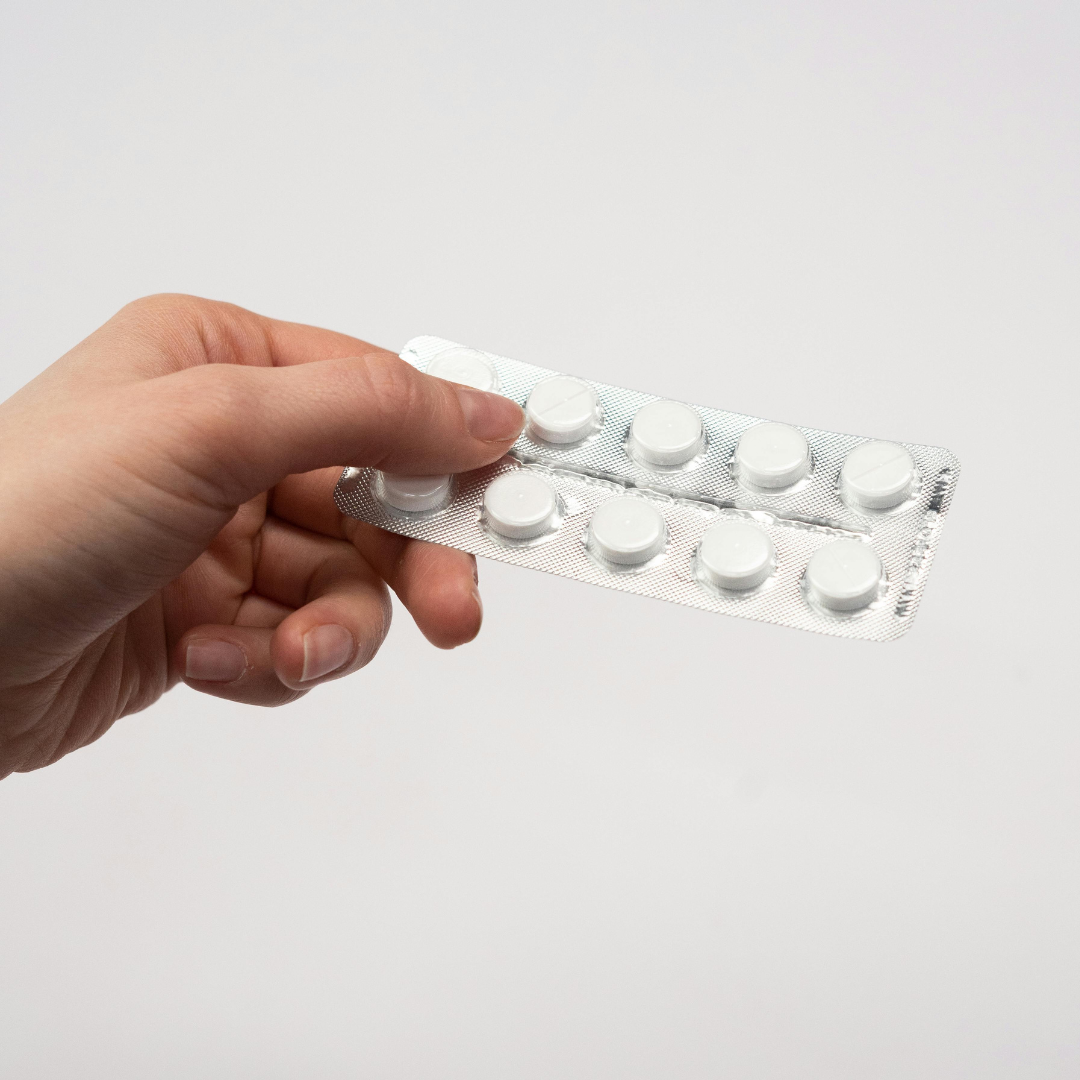Best Probiotics for Weight Loss

Managing weight involves intricate biological processes, including energy balance, appetite signalling, and fat metabolism. Recent research highlights the significant influence of the gut microbiome on these pathways, revealing that specific probiotics may help regulate body weight and metabolic health. How do probiotics alter energy regulation, and can probiotics help with weight loss? Explore the mechanisms behind weight control, the impact of the gut microbiome, and take a look at the best probiotics for weight loss.
Understanding weight management
Weight management is regulated by a dynamic balance between energy intake and expenditure, with appetite control and fat metabolism acting as key biological levels. Energy balance hinges on how much fuel the body consumes versus uses through metabolism, physical activity, and body heat production1.
Obesity, metabolic syndrome, and insulin resistance are three common challenges to maintaining a healthy weight.
- Obesity: Describes individuals who have excess body fat, made worse by genetics, inactivity, and diets high in processed foods2.
- Metabolic syndrome: A cluster of issues, including excess belly fat, high blood pressure, abnormal cholesterol, and poor blood sugar control, that signal the body’s system is under stress3.
- Insulin resistance: Where the body struggles to use insulin effectively, making it harder to manage blood sugar and fat, raising the risk of type 2 diabetes and heart disease4.
Together, these problems put a strain on many organs, increase the risk of long-term illnesses, and lower overall quality of life. Managing weight effectively supports not only physical health but also lifespan, daily mobility, and mental well-being.
The gut microbiome and weight regulation
The gut microbiome is made up of trillions of microorganisms in the digestive tract. It plays a key role in how the body manages energy, stores fat, and controls appetite. The balance of gut bacteria can affect how efficiently the body extracts energy from food and responds to hunger signals. People with obesity often have lower gut bacteria diversity and a different mix of species compared to lean individuals, which may encourage more fat storage and higher food intake5,6.
Research also shows that when overweight people lose weight, their gut bacteria begin to shift toward a healthier profile, though they don’t fully match the bacteria composition of naturally lean individuals6. Imbalances in gut bacteria have been associated with increased risk of obesity, metabolic syndrome, and insulin resistance by affecting inflammation and the way the body breaks down nutrients7.
Studies suggest that adjusting the gut microbiome, through diet changes or probiotic supplements, may help support healthy appetite control and metabolic efficiency8,9. This area of research is developing, with hopes that personalised interventions targeting gut bacteria could improve weight management and health outcomes.
Probiotics and weight loss: mechanisms of action
Probiotics are live “good” bacteria and yeasts that support a healthy digestive system and overall well-being. Probiotics can adjust the composition of gut bacteria, which may help reduce low-grade inflammation often seen in people with excess weight and improve gut barrier function, making it harder for harmful substances to enter the bloodstream10,11.
Another important way probiotics can support weight management is through the production of short-chain fatty acids (SCFAs) during the breakdown of dietary fibre12. SCFAs activate specific receptors on enteroendocrine cells, leading to increased secretion of GLP-1 and PYY, which promote satiety, reduce food intake, and enhance insulin secretion13.
The best probiotics for weight loss - what the research shows
- Lactobacillus gasseri: Clinical trials in adults with obesity have shown that daily intake of fermented milk containing Lactobacillus gasseri for 12 weeks led to significant decreases in abdominal visceral and subcutaneous fat area (by 4.6% and 3.3% respectively), as well as reductions in body weight, BMI, waist, and hip circumference14,15.
- Bifidobacterium lactis: One study reported a reduction in waist circumference and food intake with or without fibre16.
- Lactobacillus rhamnosus: The CGCMCC1.3724 strain has shown significant weight loss and fat mass reduction, especially in women, after 12–24 weeks17.
- Lactobacillus platarum: A clinical trial found that supplementation at 1 g per day over 4 weeks reduced fat absorption and improved gastrointestinal functions in overweight and obese individuals18. Other studies have demonstrated that supplementation over 12 weeks led to significant reductions in body weight, fat mass, and waist circumference compared to placebo19,20.
- Lactobacillus reuteri: A trial in patients with Prader–Willi syndrome found that supplementation over 12 weeks significantly reduced BMI and altered gut microbiota to favour weight loss and improve gut health21.
- Lactobacillus casei: In patients with type 2 diabetes, consumption of Lactobacillus casei for two months significantly decreased weight, BMI, and waist circumference, compared with the placebo group22.
- Bifidobacterium bifidum: In people who have lost weight following faecal microbiota transplantation, there was sustained enrichment of Bifidobacterium bifidum in their gut microbiome, which correlates strongly with weight loss23.
Clinical takeaways for healthcare professionals
Based on the evidence shown, can probiotics help with weight loss? Current research indicates that probiotics, particularly those from the Lactobacillus or Bifidobacterium genera, can support modest improvements in body composition, waist circumference, and appetite regulation. Clinical trial data are strongest for Lactobacillus gasseri, Bifidobacterium lactis, and Lactobacillus rhamnosus, showing reductions in abdominal fat and body weight when combined with a balanced diet14–17. Probiotics appear to work by reducing low-grade inflammation, improving gut barrier function, and increasing satiety hormones like GLP-1 and PYY through fermentation-derived SCFAs13.
This means that probiotics could be provided in addition to standard lifestyle measures, and for weight loss, are best positioned for use in patients with metabolic syndrome, overweight/obesity risk, or altered gut health profiles.
Patients should be advised that probiotics support modest results, typically small reductions in body weight or waist circumference over a few months. Clear expectations are important to avoid disappointment. Patients should also be reminded that results can vary according to baseline microbiome differences and individual health factors. Referral to a dietician can be helpful for patients needing personalised nutrition guidance, such as those with conditions like diabetes, irritable bowel syndrome, or polycystic ovary syndrome.
For many people, probiotics offer a safe and potentially effective addition to their weight loss routine.
References
- Patel P, Wermuth HR, Calhoun C, Hall GA. Antibiotics. In: StatPearls [Internet]. Treasure Island (FL): StatPearls Publishing; 2025 [cited 2025 Oct 3]. Available from: http://www.ncbi.nlm.nih.gov/books/NBK535443/
- Patangia DV, Anthony Ryan C, Dempsey E, Paul Ross R, Stanton C. Impact of antibiotics on the human microbiome and consequences for host health. Microbiologyopen. 2022 Jan 13;11(1):e1260.
- Patangia DV, Anthony Ryan C, Dempsey E, Paul Ross R, Stanton C. Impact of antibiotics on the human microbiome and consequences for host health. Microbiologyopen. 2022 Jan 13;11(1):e1260.
- Cusumano G, Flores GA, Venanzoni R, Angelini P. The Impact of Antibiotic Therapy on Intestinal Microbiota: Dysbiosis, Antibiotic Resistance, and Restoration Strategies. Antibiotics (Basel). 2025 Apr 3;14(4):371.
- Zhang S, Chen DC. Facing a new challenge: the adverse effects of antibiotics on gut microbiota and host immunity. Chin Med J (Engl). 2019 May 20;132(10):1135–8.
- Ramirez J, Guarner F, Bustos Fernandez L, Maruy A, Sdepanian VL, Cohen H. Antibiotics as Major Disruptors of Gut Microbiota. Front Cell Infect Microbiol [Internet]. 2020 Nov 24 [cited 2025 Oct 3];10. Available from: https://www.frontiersin.org/journals/cellular-and-infection-microbiology/articles/10.3389/fcimb.2020.572912/full
- Office of Dietary Supplements - Probiotics [Internet]. [cited 2025 Oct 3]. Available from: https://ods.od.nih.gov/factsheets/Probiotics-HealthProfessional/
- Suvvari TK, Vallurupalli V, Kondu KS, Ingawale S, Yegurla RR. The Lasting Imprint of Antibiotics on Gut Microbiota: Exploring Long-Term Consequences and Therapeutic Interventions. Cureus. 17(5):e84114.
- Shoaib A, Dachang W, Xin Y. Determining the role of a probiotic in the restoration of intestinal microbial balance by molecular and cultural techniques. Genet Mol Res. 2015 Feb 20;14(1):1526–37.
- Bradford G, Asgari B, Smit B, Hatje E, Kuballa A, Katouli M. The Efficacy of Selected Probiotic Strains and Their Combination to Inhibit the Interaction of Adherent-Invasive Escherichia coli (AIEC) with a Co-Culture of Caco-2:HT29-MTX Cells. Microorganisms. 2024 Feb 29;12(3):502.
- Hemarajata P, Versalovic J. Effects of probiotics on gut microbiota: mechanisms of intestinal immunomodulation and neuromodulation. Therap Adv Gastroenterol. 2013 Jan;6(1):39–51.
- Yan F, Polk DB. Probiotics and immune health. Curr Opin Gastroenterol. 2011 Oct;27(6):496–501.
- Sybesma W, Westerik N, Dalukdeniya C, Tumuhimbise J, Gregorowitsch E, Garssen J, et al. Effects of probiotic yogurt on relative respiratory tract infections, urine, saliva biomarkers, and fecal bacterial load in Ugandan children: a randomized controlled trial. Sci Rep. 2025 Mar 19;15:9478.
- Saviano A, Petruzziello C, Cancro C, Macerola N, Petti A, Nuzzo E, et al. The Efficacy of a Mix of Probiotics (Limosilactobacillus reuteri LMG P-27481 and Lacticaseibacillus rhamnosus GG ATCC 53103) in Preventing Antibiotic-Associated Diarrhea and Clostridium difficile Infection in Hospitalized Patients: Single-Center, Open-Label, Randomized Trial. Microorganisms. 2024 Jan 18;12(1):198.
- Marinelli P, Scalese G, Covelli A, Ruffa A, Bedetti G, Bruno G, et al. Lactobacillus rhamnosus GG supplementation on eradication rate and dyspepsia in Helicobacter pylori infection treated with three-in-one bismuth quadruple therapy. Front Microbiol. 2022 Dec 5;13:932331.
- Surawicz CM, McFarland LV, Greenberg RN, Rubin M, Fekety R, Mulligan ME, et al. The search for a better treatment for recurrent Clostridium difficile disease: use of high-dose vancomycin combined with Saccharomyces boulardii. Clin Infect Dis. 2000 Oct;31(4):1012–7.
- Duman DG, Bor S, Ozütemiz O, Sahin T, Oğuz D, Iştan F, et al. Efficacy and safety of Saccharomyces boulardii in prevention of antibiotic-associated diarrhoea due to Helicobacter pylori eradication. Eur J Gastroenterol Hepatol. 2005 Dec;17(12):1357–61.
- Trallero OG, Serrano LH, Inglés MB, Vallés DR, Rodríguez AM. Effect of the administration of a probiotic with a combination of Lactobacillus and Bifidobacterium strains on antibiotic-associated diarrhea. Rev Esp Quimioter. 2019;32(3):268–72.
- Liu Q, Liu L, Zhou J, Duan Y, Shi C, Zeng Y. Saccharomyces boulardii and Bifidobacterium co-treatment for antibiotic associated diarrhea in pediatrics: a multicenter efficacy and safety study. Front Cell Infect Microbiol. 2025 Jun 24;15:1575605.
- Wu J, Gan T, Zhang Y, Xia G, Deng S, Lv X, et al. The prophylactic effects of BIFICO on the antibiotic-induced gut dysbiosis and gut microbiota. Gut Pathog. 2020 Sept 9;12:41.
- Merenstein D, Fraser CM, Roberts RF, Liu T, Grant-Beurmann S, Tan TP, et al. Bifidobacterium animalis subsp. lactis BB-12 Protects against Antibiotic-Induced Functional and Compositional Changes in Human Fecal Microbiome. Nutrients. 2021 Aug 17;13(8):2814.
- Hodzhev V, Dzhambazov K, Sapundziev N, Encheva M, Todorov S, Youroukova V, et al. High-dose Probiotic Mix of Lactobacillus spp., Bifidobacterium spp., Bacillus coagulans, and Saccharomyces boulardii to Prevent Antibiotic-associated Diarrhea in Adults: A Multicenter, Randomized, Double-blind, Placebo-controlled Trial (SPAADA). Open Forum Infect Dis. 2024 Oct 21;11(11):ofae615.
- Zhu J, Sun Y, Dong Y, Zhao Y, Gai Z, Fang S. Efficacy and Safety of Lactobacillus acidophilus LA85 in Preventing Antibiotic‐Associated Diarrhea: A Randomized, Placebo‐Controlled Study. Food Sci Nutr. 2025 Jun 20;13(6):e70490.
- Corrêa NBO, Péret Filho LA, Penna FJ, Lima FMLS, Nicoli JR. A randomized formula controlled trial of Bifidobacterium lactis and Streptococcus thermophilus for prevention of antibiotic-associated diarrhea in infants. J Clin Gastroenterol. 2005;39(5):385–9.
- Hickson M, D’Souza AL, Muthu N, Rogers TR, Want S, Rajkumar C, et al. Use of probiotic Lactobacillus preparation to prevent diarrhoea associated with antibiotics: randomised double blind placebo controlled trial. BMJ. 2007 Jul 14;335(7610):80.
- Yang J, Wang C, Liu L, Zhang M. Lactobacillus reuteri KT260178 Supplementation Reduced Morbidity of Piglets Through Its Targeted Colonization, Improvement of Cecal Microbiota Profile, and Immune Functions. Probiotics Antimicrob Proteins. 2020 Mar;12(1):194–203.


